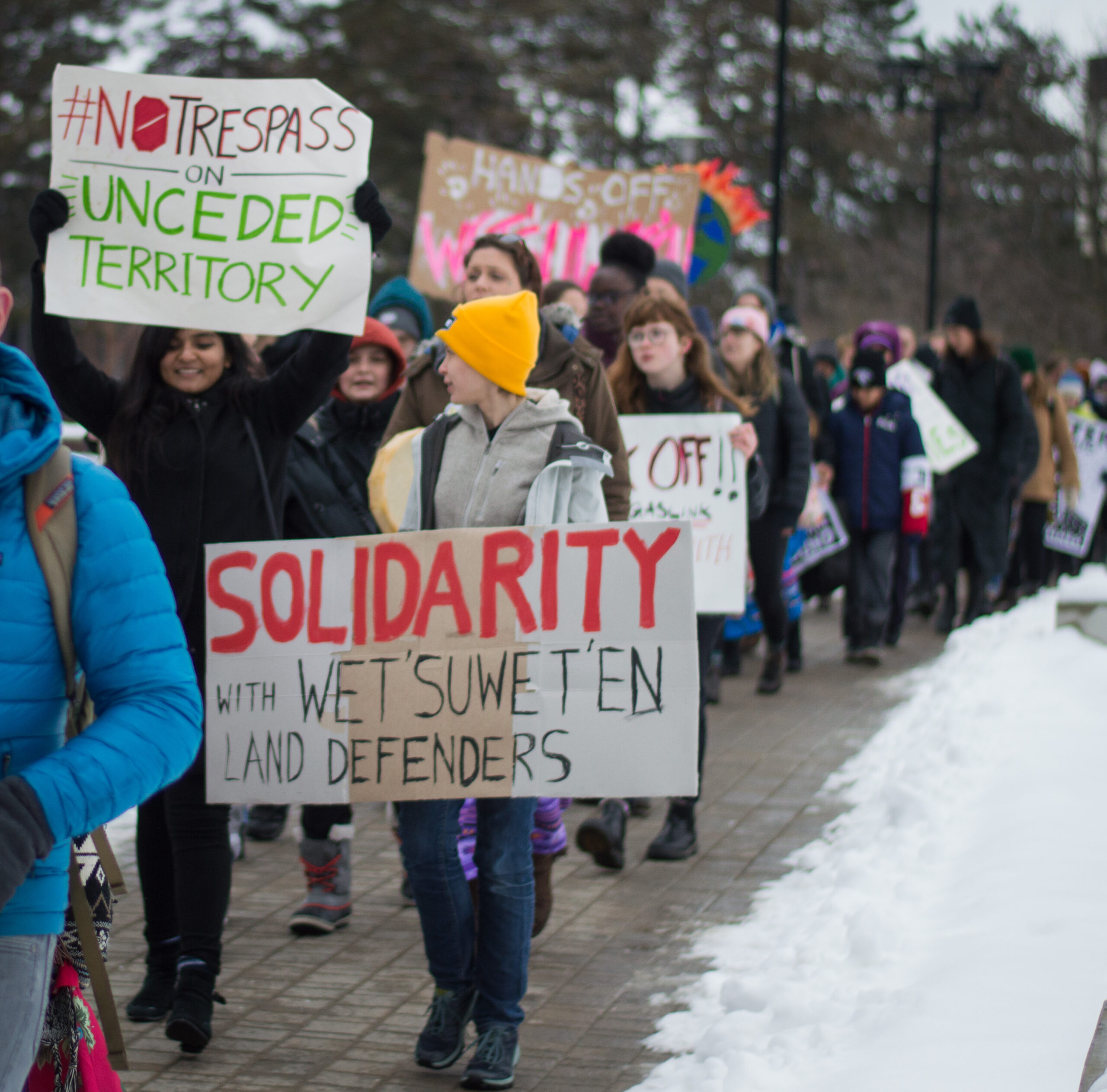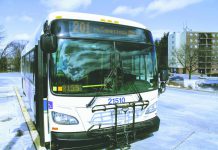
Eighty professors and students from UW have signed a statement of solidarity with the Wet’suwet’en Nation of British Columbia, along with 5908 individuals from around the world.
The statement was originally written and signed in Feb. 2019, but recently re-circulated in light of support for the Wet’suwet’en Nation as the construction of the Coastal GasLink pipeline develops.
“The Statement denounces the acts of the government and asks for the work on the Unist’ot’en territory to be immediately stopped,” Derek Armitage, a professor at the School of Environment, Resources, and Sustainability, who also signed the statement, said.
Dr. Angela Carter, Associate Professor at the UW Department of Political Science, and a signa- tory of the statement said that the TransCanada’s Coastal GasLink pipeline has been approved at the wrong time for all the wrong reasons.
“We are in the midst of a global climate crisis that requires us to wind down and phase out fossil fuels — not build pipelines in- tended to boost production. This project runs directly con- trary to Canada’s commitments to reduce emissions dramatically and quickly,” Dr. Carter said.
Dr. Carter said that the project disregards Indigenous land rights.
“The traditional government of the Wet’suwet’en Nation reject- ed the project, yet the federal and provincial governments continue to press for the pipeline. Once again, fine words spoken by gov- ernment officials about reconcili- ation and respecting the rights of Indigenous peoples ring hollow when fossil fuel extraction is at stake.”
The solidarity statement also urges Canadians to support the Wet’suwet’en people, and asks the federal and provincial government to respect the rights of Indigenous people as outlined in the constitution and the United Nations Declaration of Rights of Indigenous people (UNDRIP).
Professor Armitage emphasized how there is a crucial need to im- prove the understanding of governance issues highlighted by the Wet’suwet’en people in Canada.
He also mentioned that there are broader discussions that are required about the relationship among First Nations peoples and the federal government about sovereignty and development decisions, and that this particular statement is a small input into that larger discussion.
“The response by the general public and many in the media to the blockades highlighted a lack of clarity about First Nations governance and authority between band councils and hereditary governance, as well as the varied perspectives among First Nation communities,” Armitage said.
Professor Armitage added that ultimately greater awareness and understanding of the historical and present day conditions that have led to this latest conflict are needed to shift public perception.
Dr. Shannon Dea, a professor at the Department of Philosophy, signed the statement as a way to show her support in their fight to defend their rights and land.
“I am not willing to support the ongoing theft of Indigenous land in the name of my country. Cana- dian settlers and arrivants need to stand in solidarity with First Nations, Métis, and Inuit people in defence of their rights under Indigenous, Canadian and international law, and of natural justice,” Dr. Dea said.
Dr. Carter urges students to do more by actively supporting Indigenous communities as they assert their rights right here at home.
The Waterloo Indigenous Student Centre, FAUW’s Indigenization Working Group and the Indigenous Students Association all advocate for Indigenous rights on campus.






























